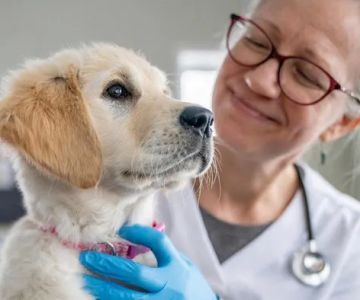What Is the Purpose of a Veterinarian?
Veterinarians play an essential role in ensuring the health and well-being of animals, both domesticated and wild. The term "veterinarian" comes from the Latin word "veterinae," meaning "working animals," and is a profession that dates back thousands of years. Today, veterinarians provide medical care for a wide variety of animals, from household pets like dogs and cats to large livestock and wildlife species. In this article, we’ll explore the many roles that veterinarians play, what it takes to become one, and how their work impacts both animals and human health.
1. Veterinary Medicine: More Than Just Pet Care
When most people think of veterinarians, they immediately envision a doctor who treats pets like cats, dogs, and birds. While this is certainly a major part of their work, the role of a veterinarian goes far beyond providing health care to pets. In fact, veterinarians are critical in a variety of sectors, including agriculture, wildlife conservation, and even public health.
Veterinarians in agricultural settings help ensure the health of livestock and poultry, which is essential to maintaining a stable food supply. In the field of wildlife conservation, veterinarians work to protect endangered species and assist with wildlife rehabilitation. They also play a key role in public health by helping prevent the spread of zoonotic diseases—diseases that can be transmitted between animals and humans.
2. Preventative Care and Early Detection
A significant part of a veterinarian’s job involves preventative care. Much like human doctors, veterinarians work to prevent diseases before they start or become serious. Regular check-ups, vaccinations, and parasite control are just a few examples of how veterinarians help maintain animals' health over time.
Preventative care also involves educating pet owners on how to keep their animals healthy. For example, many veterinarians provide advice on proper nutrition, exercise, and dental care. This can significantly improve the quality of life for animals, allowing them to live longer and healthier lives.
3. Diagnosing and Treating Illnesses
One of the most well-known tasks veterinarians perform is diagnosing and treating illnesses in animals. Much like human medicine, veterinary medicine involves diagnosing symptoms, running tests, and developing treatment plans. Whether an animal is suffering from a common illness like an ear infection or something more serious like cancer, veterinarians are skilled at providing the care needed to help animals recover.
Veterinarians also work with animals that are injured or in pain, providing necessary surgical procedures or emergency care. The process often involves a combination of medical knowledge, experience, and compassion. In some cases, veterinarians must make tough decisions, like whether to put a pet down when treatment options are exhausted or the animal is suffering.
4. Advancing Animal Health Through Research
Veterinarians are also key players in advancing knowledge in animal health through research. Many veterinarians engage in scientific research aimed at improving animal care, developing new treatments, or understanding the causes of animal diseases. This research benefits both animals and humans, as advances in veterinary science often lead to better treatments for both species.
For example, veterinary research into vaccines has helped control diseases like rabies, distemper, and parvovirus, which not only protect animals but also prevent the spread of these diseases to humans. Additionally, veterinarians contribute to the study of zoonotic diseases, helping scientists understand how diseases like Lyme disease, H1N1, and COVID-19 can spread from animals to humans.
5. The Role of Veterinarians in Emergency and Critical Care
Emergencies can happen at any time, and veterinarians are often called upon to provide critical care to animals in need. Whether it’s an animal hit by a car, a pet suffering from poisoning, or an animal experiencing a sudden health crisis, veterinarians are the first line of defense in emergency situations.
Veterinary emergency care often requires fast thinking, a calm demeanor, and the ability to make decisions under pressure. Emergency clinics are equipped with the tools needed to handle life-threatening situations, including surgery, critical care, and pain management. Veterinarians in these settings must be highly trained to manage a variety of complex issues simultaneously.
6. Educating the Public About Animal Welfare
Veterinarians play an essential role in educating the public about animal welfare and humane practices. This can include promoting responsible pet ownership, advocating for the proper treatment of farm animals, and encouraging wildlife conservation efforts. Veterinarians work with local governments, animal welfare organizations, and schools to spread the message of kindness and respect for animals.
In addition to their direct care work, veterinarians often volunteer their time to help with animal shelters, spay and neuter programs, and adoption services. Their work in these areas ensures that animals are treated with dignity and are placed in environments where they can thrive.
7. The Path to Becoming a Veterinarian
Becoming a veterinarian requires years of education and hands-on experience. To start, aspiring veterinarians must complete a bachelor's degree in a related field, such as biology, chemistry, or animal science. Afterward, they must attend a veterinary school, which typically takes four years to complete.
Veterinary school includes both classroom instruction and clinical training, where students learn to diagnose and treat animals under the supervision of experienced veterinarians. After earning a Doctor of Veterinary Medicine (DVM) degree, individuals must pass licensing exams in order to practice legally.
Veterinary medicine is a highly rewarding but challenging field. Veterinarians must not only have excellent medical knowledge but also strong communication skills to interact with pet owners and manage difficult situations. Compassion, patience, and a deep love for animals are essential qualities for anyone pursuing this profession.
SEO Title: Understanding the Role and Importance of a Veterinarian SEO Keywords: veterinarian, animal health, veterinary care, veterinary school, animal welfare, pet care, veterinarian role SEO Description: Explore the vital role veterinarians play in animal health, from preventative care and diagnostics to emergency treatment and research. Learn more about the responsibilities and educational path to becoming a veterinarian.










